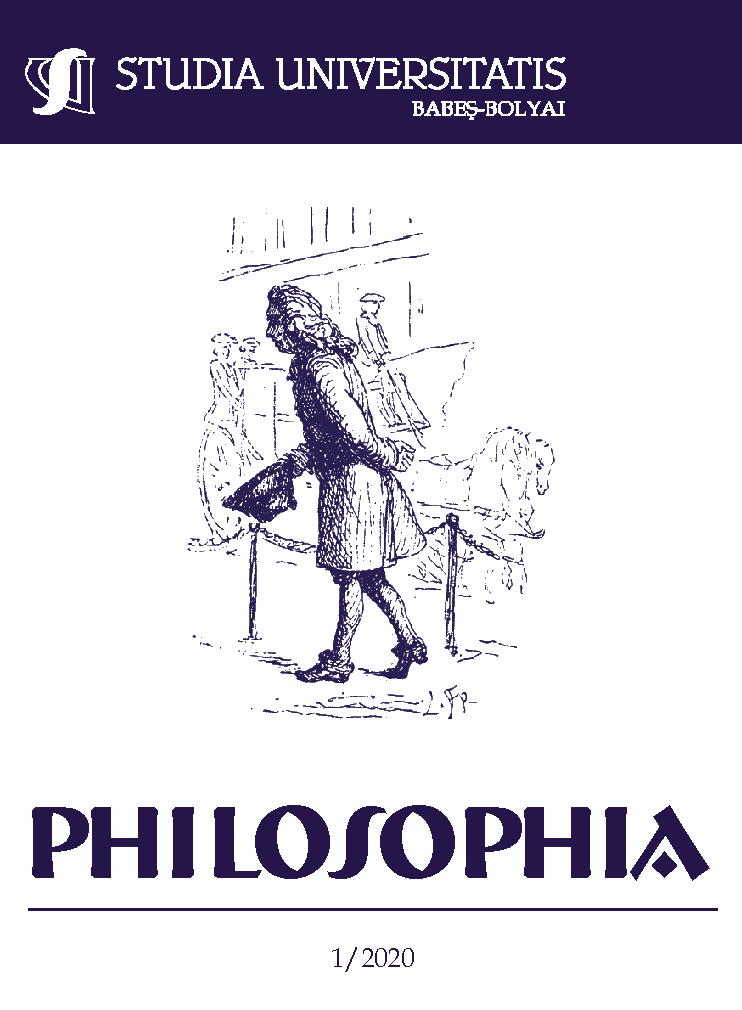‟AI NO CORRIDA” AND FEMININE EROTICISM. AROUND A CONTROVERSIAL GLIMPSE OF THE HEAD OF MEDUSA (NAGISA OSHIMA, 1976)
DOI:
https://doi.org/10.24193/subbphil.2020.1.09Keywords:
object, love, Japan, phantasm, erotism, cut, death, forclusionAbstract
The French-Japanese movie Ai no corrida is one of the most controversial movies in the history of cinematography. Nagisa Oshima found inspiration in a famous true story from 1936 imperialist Japan and then his movie about a destructive passion without limits was presented at Cannes in 1976. L’Empire des sens, as the translation of the title in French referring to Barthes’s L’Empire des signes, is the story of a destiny and of a psychic structure. In the end of the movie there is a powerful scene with an open air theatre and the image of a young girl who plays hide and seek with an old man and keeps asking him if he is ready or not, the old man saying not yet and then vanishing: here the eternized use of the object can be understood in the framework of what French psychoanalyst Jacques Lacan called forclusion. In the case of the psychotic structure there has never been an extraction of object a due to which the reality field could find its frame. And thus, the destiny of Sada Abe finds itself bounded to an object without cession and to its fulfillment in the Japanese kareiakana, that is clear open sky. Yet, since the phantasm is the writing of the non-sexual relation, as the subject’s entrance to the real, Oshima’s movie is not only about the phantasm, it is about the real.
References
Bianchi, Petro, Jacques Lacan and Cinema: Imaginary, Gaze, Formalisation, London, Routledge, 2017.
Bousseyroux, Michel, “Réalité, fantasme et réel”, in L'en-je lacanien, 2007/ 2, no. 9, pp. 139-158.
Bouyxou, Jean –Pierre, “L'Empire des sens”, in Sex Stars System, no. 13, 1976.
Capes, Vincent, “Empire des sens”, oct. 2017, http://www.zoanima.fr/lempire-des-sens.
Castanet, Didier, “La perversion au féminin”, in L'en-je lacanien, 2003/ 1, no. 1, pp. 81-94.
Cornyetz, Nina; Vincent J. Keith (eds.), Perversion and Modern Japan: Psychoanalysis, Literature, Culture, London, Routledge, 2010.
Dauman, Anatole, Jacques Gerber, Souvenir-écran, Georges Pompidou, Paris, 1989.
Gailleurd, Celine, Le regard de… Celine Gailleurd, in https://www.celluloid-angels.com/movie/l%E2%80%99empire-des-sens.
Giard, Agnes, Histoires de revenants dans l'imaginaire érotique au Japon, Glenat, Grenoble, 2006.
Goya, Amanda, “Unhappy Jouissance”, Congress of the WAP, Paris, 2014, http://www.Congresamp2014.com/en/template.php?file=Textos/La-jouissance-triste_Amanda-Goya.html.
Lacan, Jacques, Le Séminaire. Livre X: Angoisse, Paris, Seuil, 2004.
Lacan, J., Le Séminaire. Livre XI: Les quatre concepts fondamentaux de la psychanalyse, Seuil, Paris, 1973.
Lacan, J., Le Séminaire. Livre XII: Problèmes cruciaux pour la psychanalyse, Paris, Seuil, 1981.
Lacan, J., Le Séminaire. Livre XX: Encore, Paris, Seuil, 2016.
Lacan, J., Le Séminaire. Livre XXIII: Le Sinthome, Paris, Seuil, 2005.
Lacan, J., “D'une question préliminaire à tout traitement possible de la psychose”, in Ecrits, Paris, Seuil, 1966, pp. 531-584.
Lacan, J., “Avis au lecteur japonais”, in Autres écrits, Paris, Seuil, 2001, pp. 497-499.
Miller, Jacques-Alain (dir.), Jeanne Joucla (coord.), Lacan regarde le cinéma Le cinéma regarde Lacan, ECF, Coll. Rue Huysmans, Paris, 2011.
Moravia, Alberto, Trente ans au cinéma: De Rossellini à Greenaway, Flammarion, 1995.
Nguyen, Albert, “Bataille, le lord AF ou le passant du dire”, in L'en-je lacanien, 2008/ 2, no. 11, pp. 47-80.
Nicklaus, Olivier, “L'empire des sens”, https://www.lesinrocks.com/cinema/films-a-l-affiche/lempire-des-sens-2/.
Oshima, Nagisa, interview Empire of Passion, https://www.criterion.com/current/posts/1107-empire-of-passion-interview-with-nagisa-oshima.
Oshima, N., “Interview with Jean Delmas”, in Jeune cinéma, no. 96, July-August 1976.
Oshima, N., Souvenir-écran, Anatole Dauman and Jacques Gerber (eds.), Georges Pompidou, Paris 1989.
Oshima, N., L'Empire des sens, DVD, Arte editions, 2016.
Pickmann, Claude-Noële, “L'hystérie dans l'air du temps”, in ERES, 2014/ 1, no. 27, pp. 15-24.
Richir, Luc, “A propos de l'Empire des sens de Nagisa Oshima et Jacques Lacan: «L'erotisme feminin, c'est tuer l'homme»”, in Murielle Gagnebin (ed.), Cinema et inconscient, Champ Vallon, Seyssel, 2001.
Schrerrer, Ferdinand, “La fugue ou les paradoxes de la jouissance”, in Essaim, 2010/ 2, no 25, pp. 119-156.
Solano, Esthela, “Rêves, délires et réveils”, https://www.lacan-universite.fr/wp-content/uploads/2011/01/R%C3%AAves-d%C3%A9lires-et-r%C3%A9veils-9.pdf.
Tremeau, Fabien, “Ai no korrida: The Cutting Edge of Feminine Erotica”, https://www.lacan.com/frameV2.htm.
Downloads
Published
How to Cite
Issue
Section
License
Copyright (c) 2020 Studia Universitatis Babeș-Bolyai Philosophia

This work is licensed under a Creative Commons Attribution-NonCommercial-NoDerivatives 4.0 International License.





